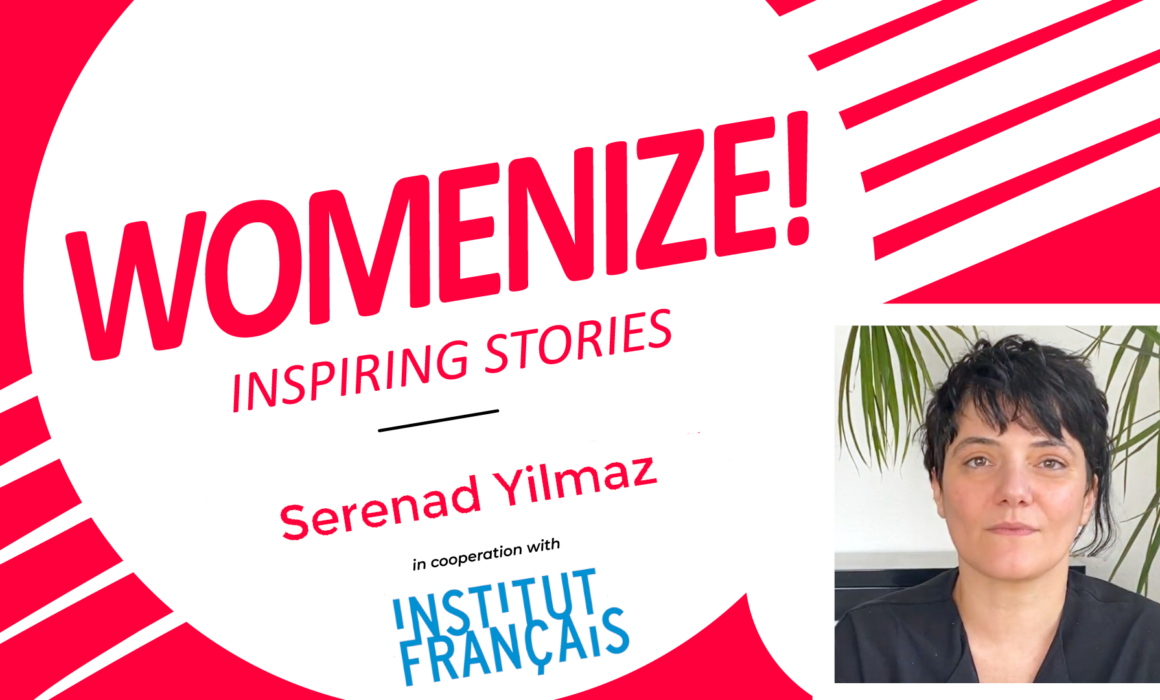Serenad Yilmaz – Womenize! – Inspiring Stories
Womenize! – Inspiring Stories is our weekly series featuring inspirational women from games and tech. For this edition we talked to Serenad Yilmaz, Founder and Creative Director at Food For Thought. She speaks about her game design journey, the creation of “Food of Thought” and how her Gender Studies background lead to “Sibel’s Journey”. Read more about Serenad in this interview:
Hi Serenad! Can you share a memorable experience from your journey in game design? How did it shape your career and passion for game development?
My more “serious” journey in the game industry started when I moved to Berlin. Since then, I’ve encountered numerous memorable moments, but one I’d like to share dates back to the early 2000s, during the emergence of Flash as a popular tool for making small games. In the spirit of exploring and learning, a friend of mine and I have created a few of those and released them into the universe of the internet. Remarkably, a Turkish platform discovered one of our creations, (and published it without asking us) resulting in an unbelievable number of 11 million plays. This was not the start of my professional journey in the game industry though. Instead, I returned to academia, diving into game-related research and writing. This route continued until I crossed paths with the Mad About Pandas team, starting a phase where I started gaining firsthand experience about games from within the industry itself.
What inspired you to co-found ‘Food for Thought’ and how do your personal experiences and perspectives influence the content and approach of your projects?
Initially, as a group of five women within the game industry, we united with the goal of using our expertise in different fields to create an inclusive educational game focused on gender, sexuality, identities, and healthy relationships. Our motivation stemmed from a shared belief in the inadequacy of education on these critical issues within digital media. Personally, I had a longstanding interest in gender, gender identities, and their intersection with computer games. And the others had experience in educational games for children. As our team evolved, we welcomed additional members, including activists advocating these causes, academics deeply engaged in relevant studies and other passionate individuals who resonated with our project. The team’s formation occurred organically, with each new member enriching our collective experience. Diversity is not merely a superficial aspect for us; it is integral to our identity. We view it not as an ornament but as a fundamental component of our collaborative strength. Beyond contributing our professional expertise, we incorporate our personal experiences and different perspectives into everything we create.
Your educational background includes an MA in Gender Studies and another in Science and Technology Studies. How have these academic pursuits contributed to your work in the creative and game industry, and how do they inform the themes and messages in your games and cultural projects?
I often emphasize that Sibel’s Journey is the amalgamation of my diverse interests and experiences. Indeed, my academic pursuits contributed to my work, evident in the titles: gender and technology. But more specifically, my thesis, one digging into the dynamics of human-technology relations through computer games and the other exploring the realm of queer identities and transgressive playing within the gaming context. Following my academic pursuits, I transitioned into the role of a designer at a game studio, where I improved my skills while predominantly working on serious games. Given this trajectory, it seems almost inevitable that I would end up creating a game like Sibel’s Journey and persisting on the path of diversity and inclusion, given the intersectionality of all these topics.
Thanks for this interview, Serenad!
Serenad’s links: LinkedIn
Womenize! – Inspiring Stories Feature by Madeleine Egger

